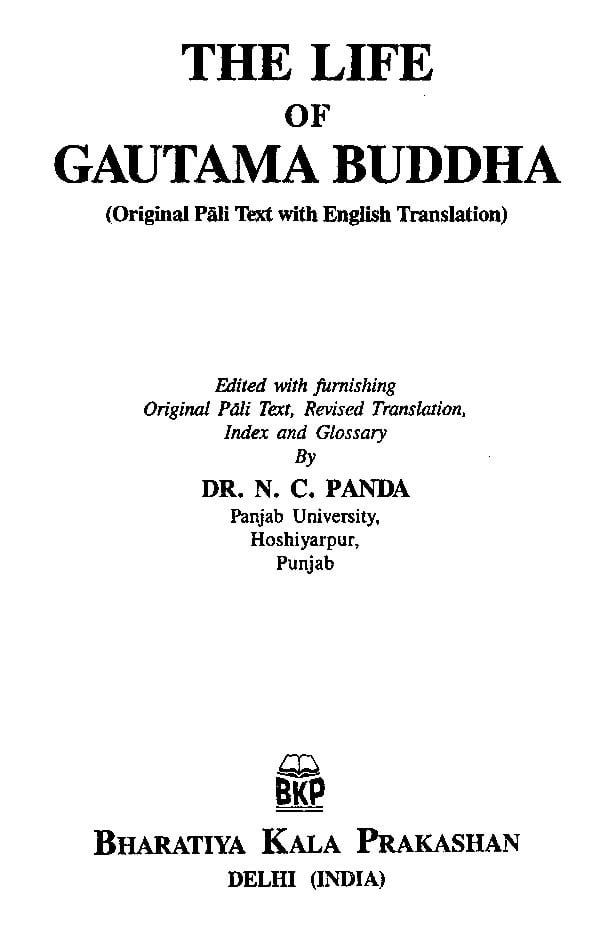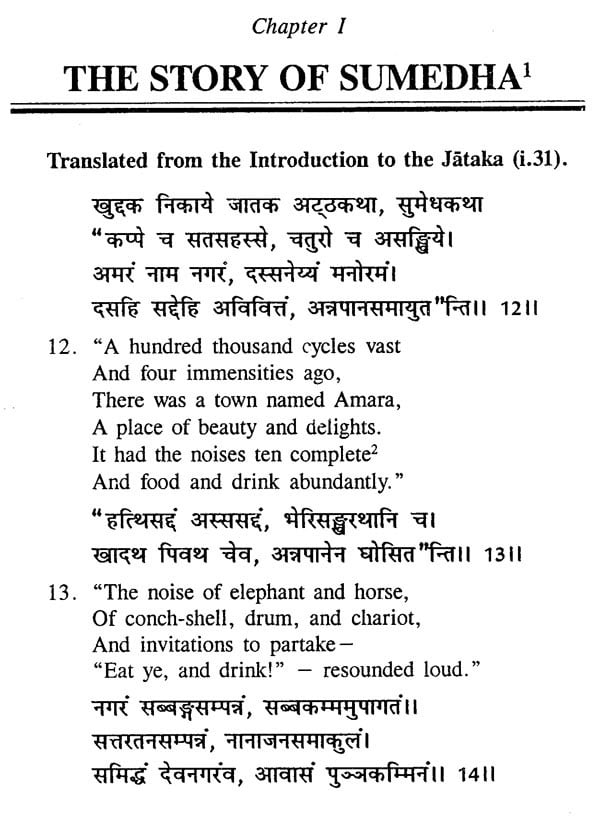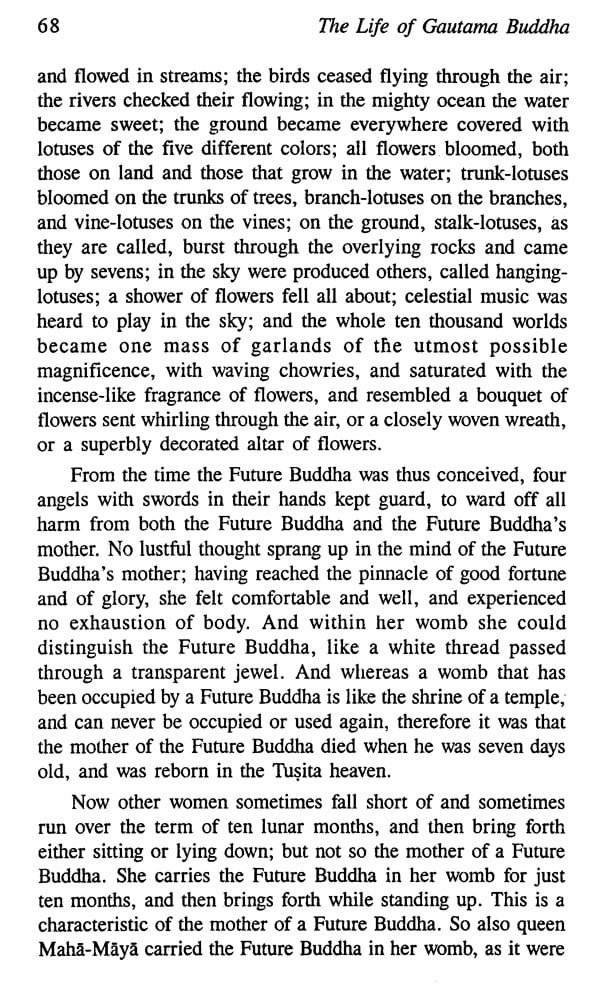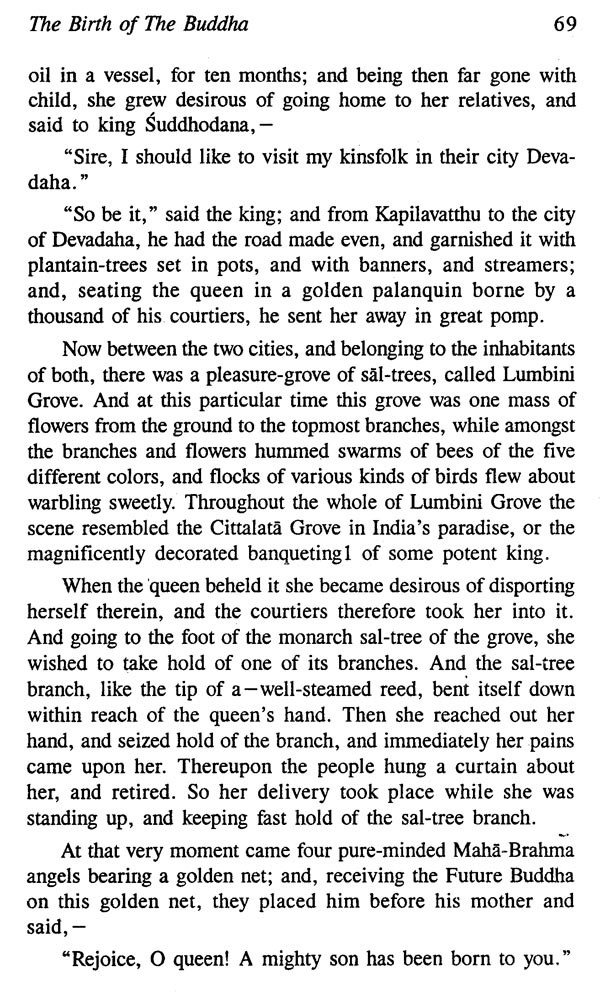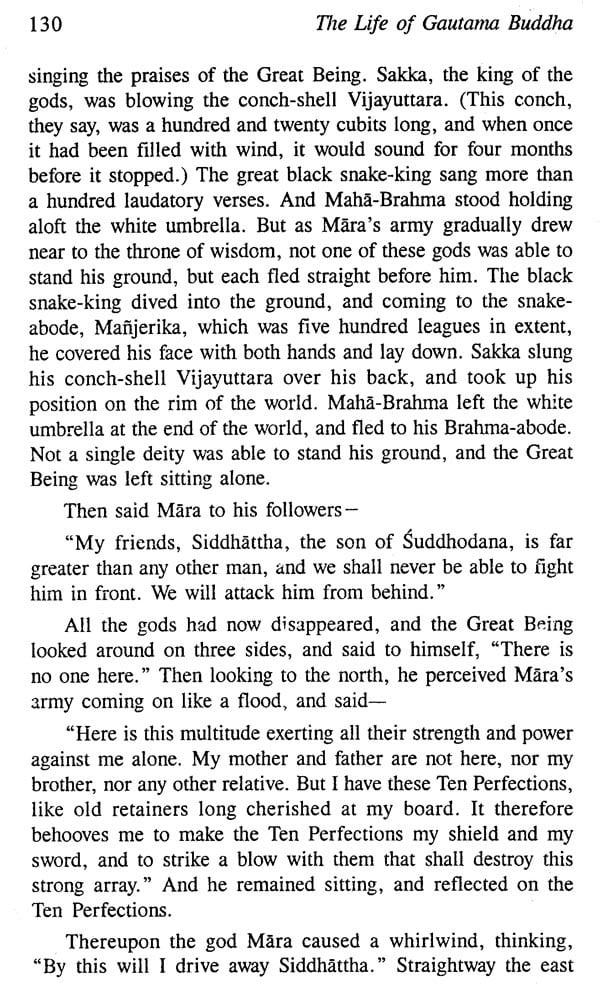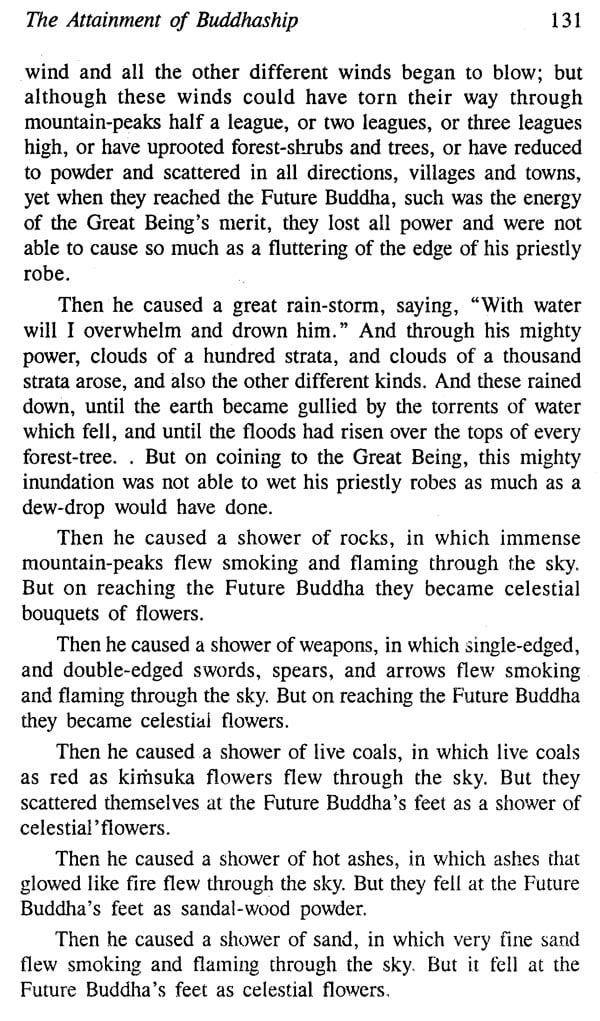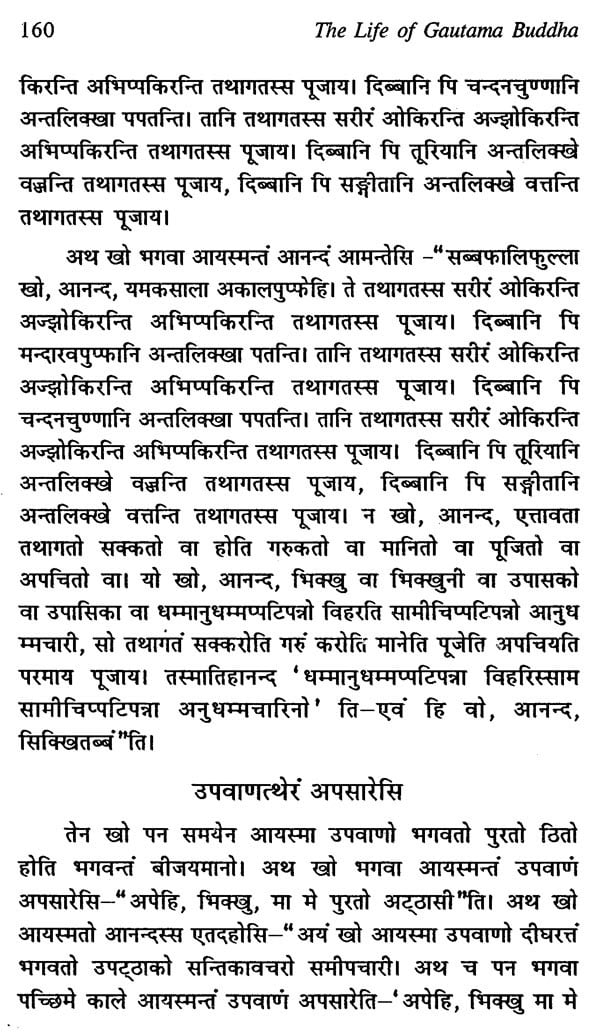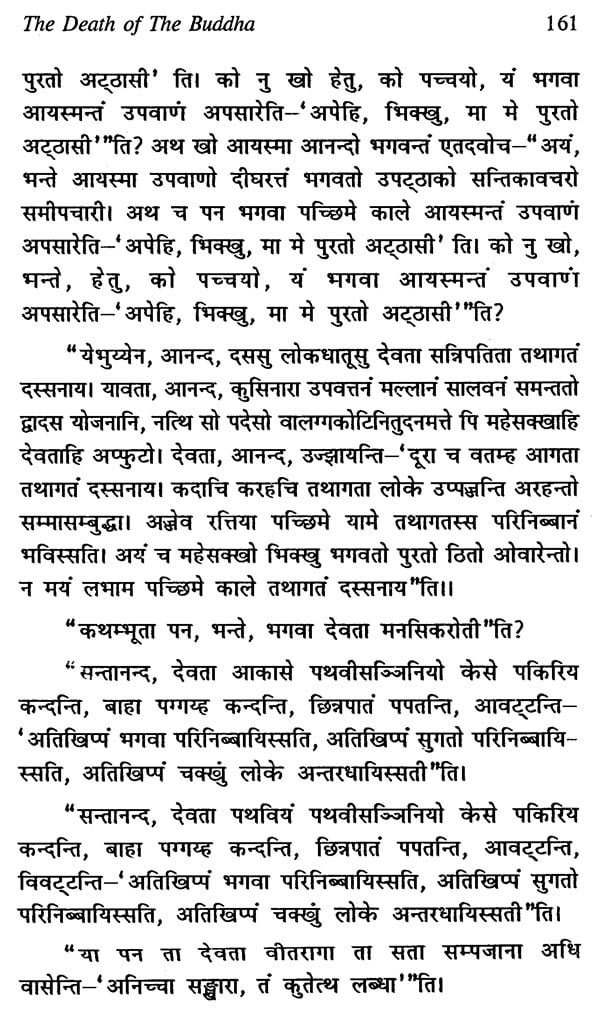
The Life of Gautama Buddha- Original Pali Text with English Translation
Book Specification
| Item Code: | AZE701 |
| Author: | N.C. PANDA |
| Publisher: | BHARATIYA KALA PRAKASHAN |
| Language: | PALI TEXT WITH ENGLISH TRANSLATION |
| Edition: | 2010 |
| ISBN: | 9788180902628 |
| Pages: | 228 |
| Cover: | HARDCOVER |
| Other Details | 9.00x6.00 |
| Weight | 420 gm |
Book Description
The book divided twelve chapters. These chapters dealing with history Gautama Buddha recorded the Tripitaka. Hence, the Life history Gautama Buddha quite authentically mentioned in work, as directly taken from original Päli (Texts). of selective presentation materials and systematic organization.
The book accompanied Introduction, Preface, Bibliography general Index. Besides these, an addi tion of Glossary of Buddhist technical terms another notable feature of work. Hence, present Edition would be immensely.
After graduation from Utkal University and Post-graduation and M.Phil. Degrees from Kurukshetra University, he obtained Ph.D. degree in Vedic Studies from Panjab University, Chandigarh. In addition to these Dr Panda also qualified in other Indological branches like Buddhism (Acharya), Kashmir Saivism (M.Phil.), Indian Philosophy (Acharya), Ayurveda Ratna and C.C. in German.
Dr Panda is the Joint Editor of Vishveshvaranand Indological Research Journal. As an ardent student and a successful researcher of Indology he has contributed numerous learned Research papers, and written and edited some valuable works, viz.:
1. Perspectives of Indian Thought, 2. Upadeśasahasri (Revised & Edited), 3. Buddhism (Text with Eng. tr. in two Vols. Compiled & Ed.), 4. Kalätattva kośa Lexicon Vol. VI (Ed.), 5. Saund aryalahari (Revised & Edited), 6. Säm khyakārikā (Ed.).
the Jataka texts, twenty-four Buddhas are mentioned have appeared preceding of time. them given, birthplaces, the their lives and their statures. Gautama himself said have met some of them during his transmigrations. Even the sacred trees under which they Supreme Wisdom are enumerated.
The term "Buddha" means "Enlightened One," and signifies that the person to whom it is applied has solved the riddle of existence, and discovered the doctrine for the cessation of misery. It was by his attainment of this supreme "Enlightenment" or Wisdom that Gotama became a Buddha. During the thirty-five years of his life previous to that event, and during all previous existences from the time he set out Lowards the Buddhaship, he was a Bodhisatta, a term which I have freely translated "Future Buddha," but which is more literally rendered "He whose essence is Wisdom."
The Buddha's given name would appear to have been Siddhattha; but as the word means "Successful in his Objects," it looks as though it might be a simple epithet. The Buddha belonged to the Sakya clan.
**Contents and Sample Pages**
